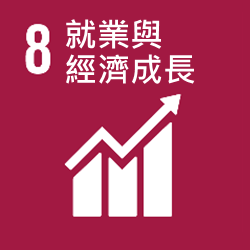
| Sustainable theme | Short-term (2024) | Medium-term (2025-2027) | Long Term (2028~) |
|---|---|---|---|

Climate Change and Operational Risk Management |
|
|
|

Green Energy and Net Zero |
|
|
|

Waste |
|
|
|

Air Pollution Emissions |
|
|
|
| Sustainable theme | Short-term (2024) | Medium-term (2025-2027) | Long Term (2028~) |
|---|---|---|---|

Product Safety and Quality |
|
|
|

Customer Privacy and Information Security |
|
|
|

Human Resources Development |
|
|
|

Chemical Safety Management |
|
|
|

Occupational Safety and Health |
|
|
|
| Sustainable theme | Short-term (2024) | Medium-term (2025-2027) | Long Term (2028~) |
|---|---|---|---|

Corporate Governance |
|
|
|

Business Ethics |
|
|
|

Economic Performance |
|
|
|

Innovative R&D and Patents |
|
|
|

Sustainable Supply Chain Management (Including the Use of Conflict-Free Minerals) |
|
|
|
Waste diversion rate is defined as: (reclaim + reduction + recycling + reuse + waste energy recovery + anaerobic digestion + biofuel + composting) / total waste weight; where the percentage of waste energy recovery shall be less than 10%.